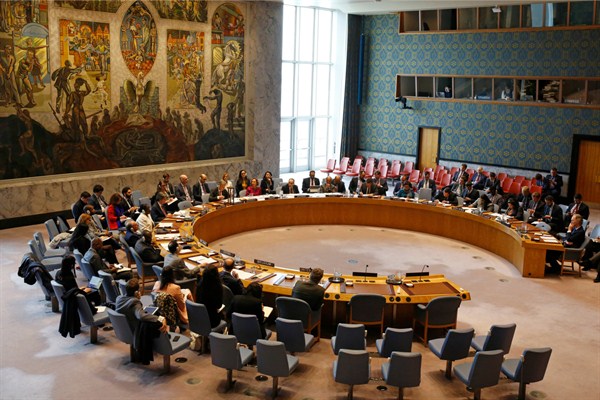It wasn't so long ago that there was a legitimate push to expand the United Nations Security Council. So why have the calls for UNSC reform disappeared?
Among the mysteries of contemporary world politics is the lack of high-level debate over reforming the United Nations Security Council. U.N. membership has expanded dramatically since 1945, from 51 to 193 nations, and the global economy has experienced tectonic shifts, especially in the past 30 years. When the Berlin Wall fell in 1989, the seven largest Western economies—three of which have permanent seats on the council—accounted for 51 percent of global economic output. Today they account for only 30 percent. A decade and a half ago, many voices insisted that the council must expand to retain its legitimacy and effectiveness. They have since fallen silent.
The most obvious explanation for this reticence is that U.N. member states cannot agree on what form Security Council expansion should take. Under the U.N. Charter, changes to the council’s composition require two-thirds approval within the General Assembly, plus ratification of the relevant legislation by two-thirds of member states, including the five permanent members of the Security Council, known as the P5. No surprise, then, that the council has expanded only once, with the addition of four elected members in 1965.

